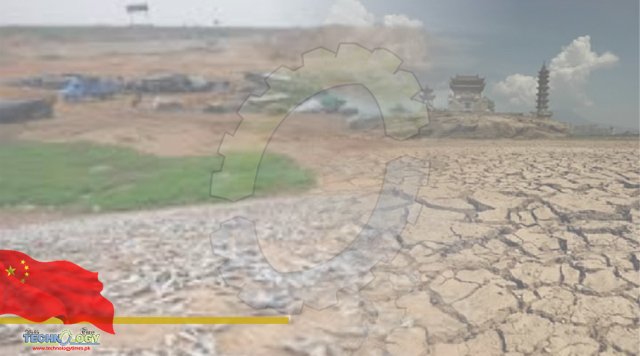China’s parched Poyang Lake , Standing on the northern shore of Poyang Lake, China’s largest freshwater lake, The vast waterbody had been transformed into small streams, and some parts had dried up, exposing the lake bed.

A severe drought has now shrunk the lake to just 28 per cent of its normal size for this time of the year, turning much of the area into grassland. China Central Television reported on that Poyang Lake measured just 638 sq km (246 square miles) late last month, while the historical average for the same period was 2,252 sq km. “The lake entered the dry season 100 days early,” Li, an associate professor at Jiangxi Normal University’s college of life sciences That is the earliest dry season in records dating back to 1951. China’s parched Poyang Lake , Water levels on Poyang Lake, as measured at Xingzi Station, hit a record low of 7.1 metres (23 feet) on September 23 – down from 19.43 metres – after three months of drought. Authorities in Jiangxi province issued a red alert for dwindling water supplies that day and came up with countermeasures, including the release of water from reservoirs, to help the 4.8 million people in the province affected by the drought sustain crop production.
But the drying up of the lake could affect more than harvests. Every year, hundreds of thousands of migratory birds fly to the lake to spend the winter and experts said close monitoring would be needed to see if they suffered from a shortage of food. Poyang Lake and its vast surrounding wetlands are recognised as one of the world’s most important winter habitats for migratory waterbirds, with more than 500,000 spending winter there. China’s parched Poyang Lake , The wetlands are formed as the lake expands and shrinks due to seasonal water-level variations, from about 3,000 sq km during the rainy season to less than 500 sq km in the dry season. But autumn droughts had become more common in the past decade, Li said, almost amounting to a “new normal”, and migratory birds had changed their wintering places in and around the lake. The situation might be worse this year as the basin of the Yangtze River, which feeds the lake, has been gripped by a historic drought caused by a months-long heatwave and record low rainfall.
Source: This news is originally published by scmp